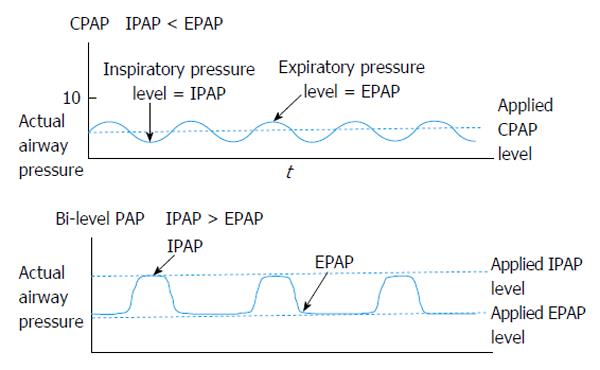Continuous positive airway pressure cpap devices market
Table of Contents
Table of Contents
Continuous positive airway pressure therapy (CPAP) is a treatment for obstructive sleep apnea. It involves wearing a mask over your nose or mouth while you sleep, which provides a constant flow of air to keep your airways open. While CPAP therapy is effective at treating sleep apnea, many patients struggle with incorporating exercise into their treatment regimen. In this article, we’ll explore the relationship between CPAP therapy and exercise, and how they can work together to improve your overall health.
Pain Points
Exercise can be a challenge for many people with sleep apnea who are using CPAP therapy. The mask can be uncomfortable during physical activity, and it can be difficult to breathe through the mask while exerting yourself. Additionally, some patients may feel that CPAP therapy cuts into their workout time, as they need to use the machine every night to treat their sleep apnea.
Target of CPAP Therapy and Exercise
The target of incorporating exercise into your CPAP therapy regimen is to improve overall health. Exercise can help you lose weight, which is a common contributing factor to sleep apnea. It can also improve cardiovascular health, reduce stress and anxiety, and improve sleep quality. Over time, regular exercise can even help reduce the severity of sleep apnea, making it easier to manage with CPAP therapy.
Summarizing the Main Points
Overall, incorporating exercise into your CPAP therapy regimen can have numerous health benefits. While it may be challenging at first, it’s important to stick with it in order to achieve optimal results. By combining CPAP therapy with exercise, you can improve your sleep quality, reduce stress, improve cardiovascular health, and ultimately improve your overall quality of life.
The Benefits of Exercise and CPAP Therapy
As someone who has struggled with sleep apnea and incorporating exercise into my CPAP therapy, I can attest to the benefits that come with doing so. While it may be challenging at first, with time, it becomes easier and even enjoyable. I found that regular exercise helped me to feel more energized during the day, improved my mood, and helped me to sleep better at night.
 Incorporating exercise into my CPAP therapy routine also helped me to maintain a healthy weight. By reducing the amount of excess weight on my body, I was able to reduce the severity of my sleep apnea, making it easier to manage with CPAP therapy.
Incorporating exercise into my CPAP therapy routine also helped me to maintain a healthy weight. By reducing the amount of excess weight on my body, I was able to reduce the severity of my sleep apnea, making it easier to manage with CPAP therapy.
Types of Exercises to Consider with CPAP Therapy
If you’re considering incorporating exercise into your CPAP therapy regimen, there are a few types of exercise to consider. Aerobic exercise, such as running or biking, can improve cardiovascular fitness and help you burn calories. Strength training exercises, such as weightlifting, can help you build and maintain muscle mass, which can help improve metabolism and overall health. Finally, low-impact exercises such as yoga or Pilates can help reduce stress and improve flexibility.
 ### The Importance of Consistency
### The Importance of Consistency
Regardless of which type of exercise you choose, the most important factor is consistency. Regular exercise is key to achieving optimal results and improving overall health. It’s important to find a type of exercise that you enjoy in order to make it easier to stick with over time. By incorporating exercise into your CPAP therapy regimen, you’ll likely find that both become easier and more effective over time.
Question and Answer
Q: Can exercise help reduce the severity of sleep apnea?
A: Yes, exercise can help reduce the severity of sleep apnea by reducing excess weight on the body and improving overall health.
Q: Is it safe to exercise while using a CPAP machine?
A: Yes, it is safe to exercise while using a CPAP machine. However, it’s important to talk to your doctor about any concerns or discomfort you may experience when exercising with the machine.
Q: What types of exercise are best for someone with sleep apnea?
A: Aerobic exercise, strength training, and low-impact exercises such as yoga can all be beneficial for someone with sleep apnea.
Q: How often should I exercise if I’m using CPAP therapy?
A: It’s recommended that adults get at least 150 minutes of moderate-intensity aerobic exercise per week, along with strength training exercises on two or more days per week.
Conclusion of Continuous Positive Airway Pressure Therapy and Exercise
By incorporating exercise into your CPAP therapy regimen, you can improve your overall health and reduce the severity of sleep apnea. While it may be challenging at first, with time, regular exercise becomes easier and even enjoyable. Talk to your doctor about incorporating exercise into your CPAP therapy regimen and find a type of exercise that you enjoy in order to stick with it over time.
Gallery
Continuous Positive Airway Pressure Therapy | Nursing Information

Photo Credit by: bing.com / pressure positive airway continuous education health nursing information therapy choose board
CPAP-Demo-Kit - Continuous Positive Airway Pressure (CPAP

Photo Credit by: bing.com / airway cpap demonstration renesas
Continuous Positive Airway Pressure (CPAP) -Therapie

Photo Credit by: bing.com / cpap apnea airway nasal sleepers suffering bipap snoring therapie hable dificultades prism somsak eyeem using copd galeon fitnesslifestylehealthclub
Mechanism Of Action Of Continuous Positive Airway Pressure Therapy IV

Photo Credit by: bing.com / airway pressure positive continuous therapy iv
Continuous Positive Airway Pressure (CPAP) Devices Market

Photo Credit by: bing.com / pressure positive airway continuous cpap devices types market machine breathing bipap different insights premium press release



